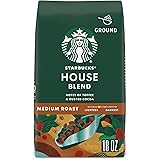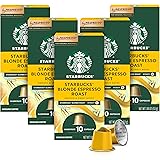Navigating the complex world of gut health can often feel overwhelming, with conflicting advice and endless diet trends making it difficult to discern what truly benefits our digestive system. Many people struggle to understand the fundamental principles of maintaining a healthy gut, often focusing on restrictive diets or trendy superfoods while overlooking the basics.
However, as Professor Tim Spector highlights in the insightful video above, achieving a thriving gut microbiome doesn’t require extreme measures. The solution lies in embracing a few simple, yet powerful, general rules that can lead to significant improvements in your overall well-being. This guide will expand on these crucial healthy gut tips, offering actionable advice to nourish your digestive system effectively.
Healthy Gut Tips: Unlocking a Thriving Digestive System with Everyday Foods
1. Embracing Real Food for a Healthy Gut
The foundation of a healthy gut starts with your food choices, particularly by prioritizing whole, unprocessed foods. Professor Spector emphasizes the critical importance of reducing processed foods to an absolute minimum in your daily diet. These industrially altered items often contain high levels of sugar, unhealthy fats, artificial additives, and preservatives that can disrupt the delicate balance of your gut microbiome.
Think of your gut as a bustling garden; processed foods are like chemical pesticides that harm the beneficial flora trying to grow. Instead, choose ingredients that are as close to their natural state as possible, forming the bedrock of a gut-friendly eating plan. Focus on fresh fruits, vegetables, whole grains, legumes, and lean proteins to provide your body with essential nutrients.
What Makes Processed Foods Harmful?
Processed foods often strip away vital nutrients, especially fiber, which is crucial for gut health. They also frequently introduce ingredients like high-fructose corn syrup, trans fats, and emulsifiers that can fuel harmful bacteria while diminishing the good ones. This imbalance contributes to inflammation and various digestive discomforts, making it harder for your gut to function optimally.
2. The Power of Fiber: Fueling Your Gut Microbes
Fiber is often called the unsung hero of digestive health, playing a pivotal role that many people overlook in their dietary focus on fats or sugars. Professor Spector rightly points out that most individuals likely need to double their current fiber intake to truly support a healthy gut. Fiber acts as a vital food source for the trillions of beneficial microbes residing in your digestive tract, essentially serving as their primary fuel.
When your gut microbes receive adequate fiber, they thrive and produce beneficial compounds like short-chain fatty acids, which nourish your gut lining and support your immune system. Without enough fiber, these essential microbes can starve, leading to an imbalance that negatively impacts digestion and overall health. Increasing your fiber intake is a straightforward yet incredibly impactful step towards a more resilient gut.
How to Boost Your Fiber Intake
Integrating more fiber into your diet can be achieved through various delicious sources. Opt for whole grains such as oats, barley, and quinoa, which offer a hearty dose of both soluble and insoluble fiber. Legumes, including lentils, beans, and chickpeas, are powerful fiber champions that can be easily added to soups, salads, or main dishes. Fruits like apples, pears, and berries, along with a wide array of vegetables, provide excellent fiber content and essential vitamins. Slowly increasing your fiber intake allows your digestive system to adapt comfortably.
3. Variety is the Spice of Gut Life
Beyond simply eating more plants, the diversity of your plant-based diet is a critical factor for a flourishing gut microbiome. Your microbes are like a diverse community, and each different type of plant food nourishes specific groups of bacteria, fostering a richer and more resilient ecosystem. Sticking to the same handful of foods every day, even healthy ones, limits the variety of nutrients available to your gut inhabitants.
Professor Spector encourages mixing up your choices, moving beyond the daily prawn salad or avocado toast. Think of your gut as an orchestral ensemble; a wide range of instruments creates a beautiful symphony, much like a variety of foods supports a balanced microbiome. Aim to incorporate a broad spectrum of fruits, vegetables, nuts, seeds, and pulses into your weekly menu, embracing different colors and textures.
Embracing the Rainbow
Different colored fruits and vegetables often indicate varying nutritional profiles and unique types of fiber and plant compounds beneficial to different microbial species. For instance, dark leafy greens offer distinct nutrients compared to vibrant red berries or orange root vegetables. Actively seeking out this dietary diversity helps ensure your gut microbes receive a broad spectrum of nourishment, leading to a more robust and adaptable digestive system.
4. Discovering Polyphenols: Your Gut’s Hidden Heroes
Polyphenols are naturally occurring plant compounds that act like superheroes for your gut microbes and overall health. These vibrant chemicals give many fruits and vegetables their rich colors and contribute to their distinct flavors. While you might not have explicitly heard of them, Professor Spector confirms their immense value, especially in how they interact with your gut microbiome.
When consumed, polyphenols travel to your large intestine where they are metabolized by your gut bacteria, which in turn produce beneficial chemicals. These powerful compounds support your immune system, help to dampen down inflammation throughout the body, and can even play a role in reducing allergies. Incorporating polyphenol-rich foods is an excellent strategy for nurturing a healthy and resilient digestive system.







